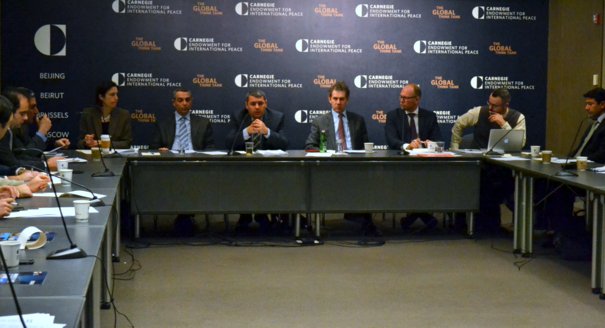Registration
You will receive an email confirming your registration.
2014 has seen violent flare ups in Nagorny Karabakh, as Azerbaijani and Armenian forces have engaged in skirmishes across the ceasefire line. The international negotiations process has come under renewed pressure. Seven years have passed since the first draft of the “Madrid Principles,” a framework document on resolving the conflict, was put on paper by the co-chairs of the Minsk Group of the Organization for Security and Cooperation in Europe (OSCE). These basic principles have been the basis for negotiations, but no breakthrough has been made.
Carnegie hosted a discussion with a visiting group of Armenian and Azerbaijani civil society actors and two representatives of the London-based NGO, Conciliation Resources, on the state of the Armenian-Azerbaijani peace process. Brookings’ Fiona Hill moderated.
Laurence Broers
Laurence Broers is the editor of the journal Caucasus Survey and Caucasus program associate at Conciliation Resources. He previously worked at Conciliation Resources as Caucasus projects manager, as well as at Amnesty International as a researcher on Armenia and Azerbaijan.
Siegfried Wöber
Siegfried Wöber is Caucasus projects manager at Conciliation Resources. Previously, he coordinated a peacebuilding program in the South Caucasus and afterward continued focusing on the region during seven years at the OSCE Conflict Prevention Center.
Fiona Hill
Fiona Hill is director of the Center on the United States and Europe and senior fellow in the Foreign Policy Program at the Brookings Institution. She is a frequent commentator on Russian and Eurasian affairs, and has researched and published extensively on issues related to Russia, the Caucasus, Central Asia, regional conflicts, energy and strategic issues. She is also the co-author of the recently published book, Mr. Putin: Operative in the Kremlin (Brookings Press, 2013).
